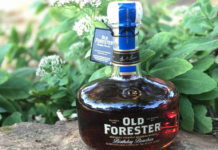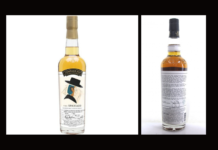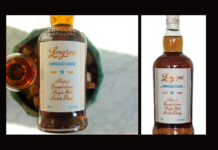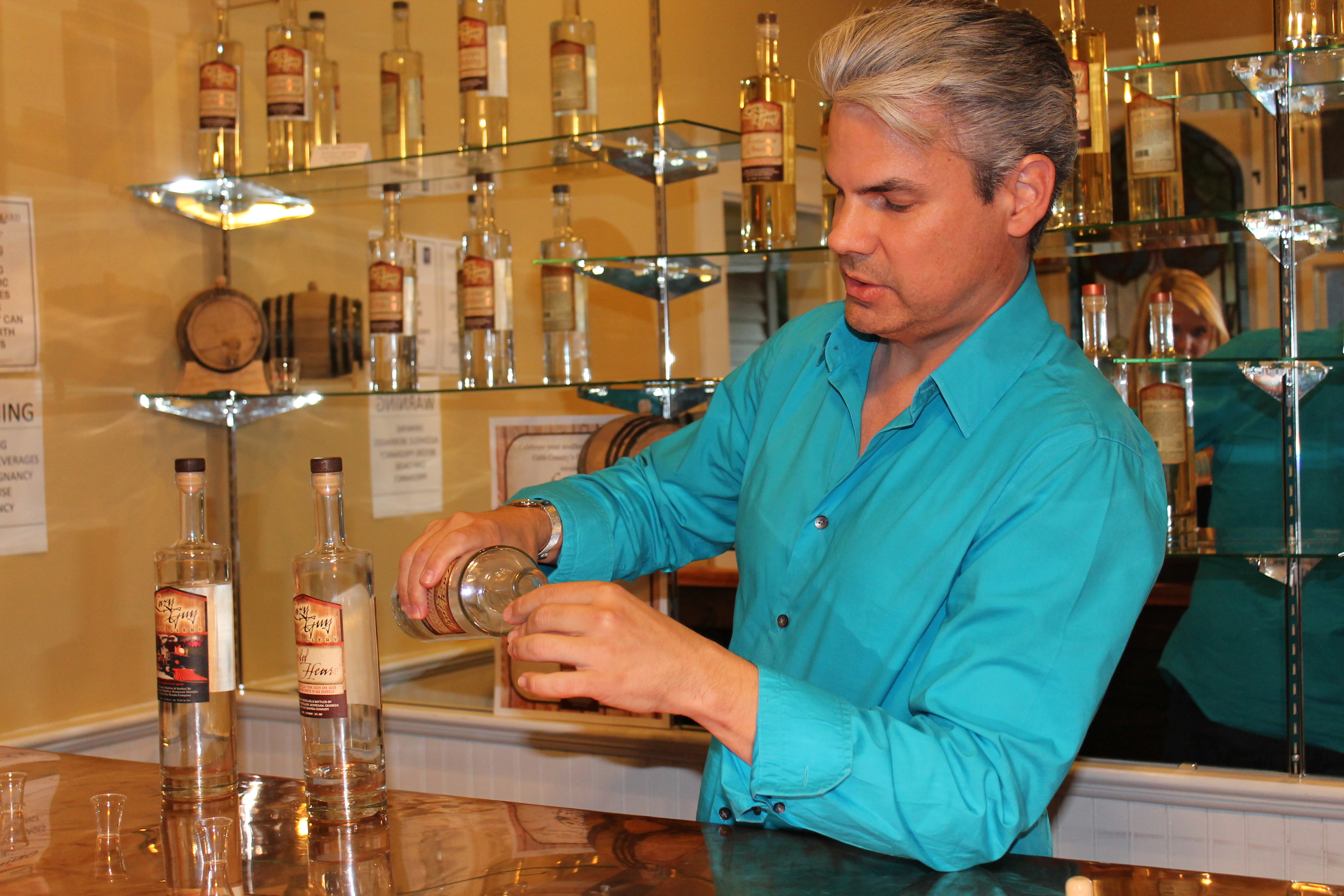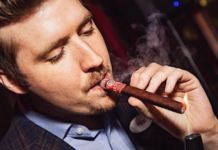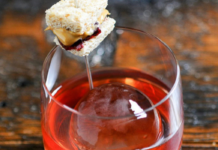Lazy Guy Distillery is located in the heart of downtown Kennesaw, just northwest of Atlanta. Kennesaw has deep historical roots dating back to General Sherman’s March to the Sea during the Civil War. Prominent for its railroad locomotive “The General” and its key location close to the capital of Georgia, Kennesaw is the perfect place to make whiskey, a practice that has been revered throughout American history. We spoke to Mark Allen, the founder and head distiller of the Lazy Guy Distillery. With a name like that, we knew we had to meet him.
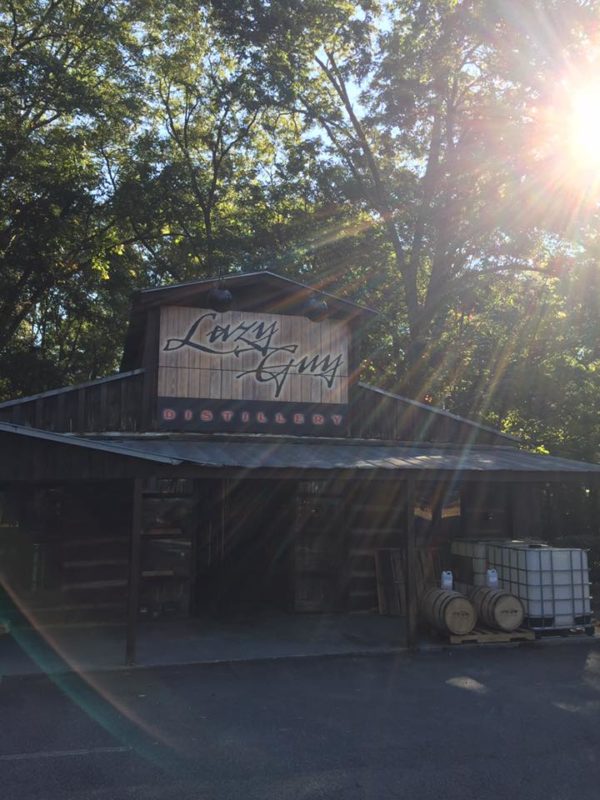 Mark, tell us about yourself. How did you find yourself immersed in the world of spirit distillation?
Mark, tell us about yourself. How did you find yourself immersed in the world of spirit distillation?
MA: It’s really a retirement plan. I like a challenge and I had worked for an alcohol distributor in the mid/late 1990’s in a difference capacity. The people in the companies I worked with really seemed to like the industry and were invested in its success. After leaving that company where I worked for several years, it stayed in the back of my mind. As my technology company evolved it occurred that I didn’t want to remain in the technology field in my older years. As I looked to do something that would hopefully generate some income, I started researching what it took to get a distillery off the ground in Georgia. I committed to it in 2013 and begin setting the foundation for Lazy Guy Distillery.
What was your vision for Lazy Guy Distillery? Tell us about the name.
MA: ‘Lazy Guy’ is now a goal J But it’s actually anything but lazy working around the distillery. When I was searching for a name for the company I thought of whiskey (which is my preferred liquor) and how its viewed in society. To me, it invokes thoughts of something casual, relaxed, friends sitting around sipping a good Bourbon. Just seemed to be a good fit.
Name a few other distillers or distilleries who inspire you.
MA: That’s a tough one – not to say or imply there aren’t great distillers out there. But when I stated Lazy Guy there was no one distiller who I was really well aware of enough to be inspired. The inspiration was more from the craft distilling industry overall where independent entrepreneurs could hand-craft a spirit that consumers connected with and that was in demand. That’s an inspirational thought!
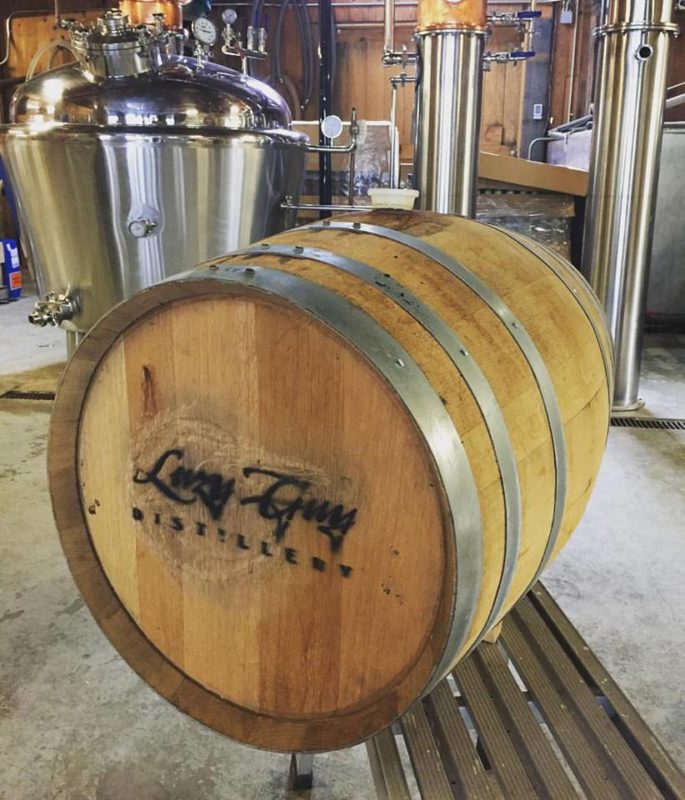 What whiskey expressions do you currently produce, and how are they all different?
What whiskey expressions do you currently produce, and how are they all different?
MA: Bourbon Whiskey and Rye Whiskey are our primary focus and comprise 98+% of our production schedule. We produce other spirits as well as some one-off products, but dark whiskey is really the core of what we’re focused on – and what the industry has proven will always be in demand. Our Bourbon is corn-based with rye and barley. Notes of vanilla, tea, oak and maybe some corn/caramel sweetness are the predominate flavors. Our Rye Whiskey recipe incorporates some dark chocolate barley. So our rye has a slight coffee nose, white pepper on the mid-pallet and a notable coffee/chocolate finish.
Why did you start production? Did you see a gap in the market or was it to fulfill some passion?
MA: We started production in January 2014. The ‘gap’ in the markets, which still exists today, is the overwhelming majority of dark whiskey comes from the ‘big boy’ distillers; Jack Daniels, Jim Beam, etc. Those well named brands have been shoved down the throats of consumers for a LONG time. Consumers and particularly millennial’s are seeking new brands that are special/difference – craft, if you will. Something out of the ordinary they can get behind. That’s exactly what has been fueling craft beer over the last several years and has now spilled into the craft spirits market.
What exactly does your job entail?
MA: My distillery job entails ALL aspects of business. I’m a one-person operation with some help from a few folks on certain projects. All the things which are required to keep the business going, I handle as best I can. Marketing, research, procurement, financials, marketing, government paperwork, sales and the entire operations side of the business I touch every day of the week in some manner. Interestingly, as a small operation, I’m only in production actually making whiskey two days a week or less. The other days I’m working with distributors, retailers, marketing folks, grain suppliers and other logistics folks to ensure we have what we need to operate. Although some may assume mistakenly that all we do is produce whiskey and sample it all day long – nothing couldn’t be father from the truth. Distilling is the smallest portion of what I do @ Lazy Guy..
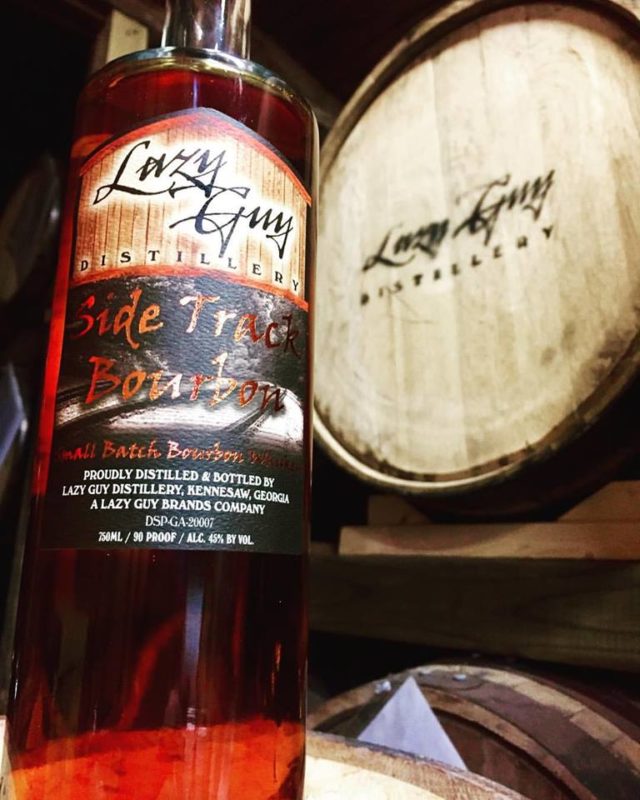 What have been the main challenges involved in setting up a new distillery?
What have been the main challenges involved in setting up a new distillery?
MA: #1 – Restrictive regulations in the State of GA and #2 – capital expense.
There’s actually a LONG list of challenges but these dominate the top two spots. Alcohol production is the most highly regulated and taxed industry in GA (in my opinion) and certainly carries the highest tax liabilities. The inability to sell our products directly to end-users is a huge problem. Also, the capital outlay for a whiskey is some of the highest due to the ‘whiskey aging’ requirement. What I produce today won’t come out of the barrel for any where form 2-8 years. A small distillery will burn through approximately $15K in cash each month with only two-three days of production; increase that to 4-5 days of operation and you’re @ $45K a month. I’ll not see return on that expense for 2-8 years. Managing that lack of income for such a long timeframe is a REALLY tough thing to do. Other distilled spirits like rum, gin or vodka don’t always have any aging requirements – so they can turn around back to the market in 48 hours or so. Whiskey is a very different story.
Where or who do you feel is the driving, innovative force behind our craft distilling industry right now?
MA: Entrepreneurs seeking challenges and the legislation in most states relaxing to a point where those seeking that type of challenge can try their luck. Also, as I mentioned, consumers are becoming more brand-aware and are seeking alternate spirits from the big produces and seek more local/craft spirits. There will be a tipping point however in the coming years where craft spirits begins to become a saturated market; we’re already seeing that in the craft beer markets in some areas. At that point those with established/reputable spirits will have the best shot at stability in a saturated market.
For quite sometime now, American whiskey has taken off, what with the expanding number of artisan distilleries and the return of rye to popularity. What’s behind the boom?
MA: Bourbon popularity is more linear where Rye is cyclical. Again, attributing much to the craft bars in NY, LA and other major cities, millennial’s and those seeking something ‘different’ have fueled the resurgence of Rye Whiskey over bourbon. I’d expect that to continue for the next few years. To contrast that, white whiskey or ‘moonshine’ was very popular from 2008-2013 but has notable waned in the last two years. White whiskey has a short cycle and was driven largely by a few TV shows in those years. Now, the white whiskey market has virtually tanked and is largely dead except for a few niche products in certain markets.
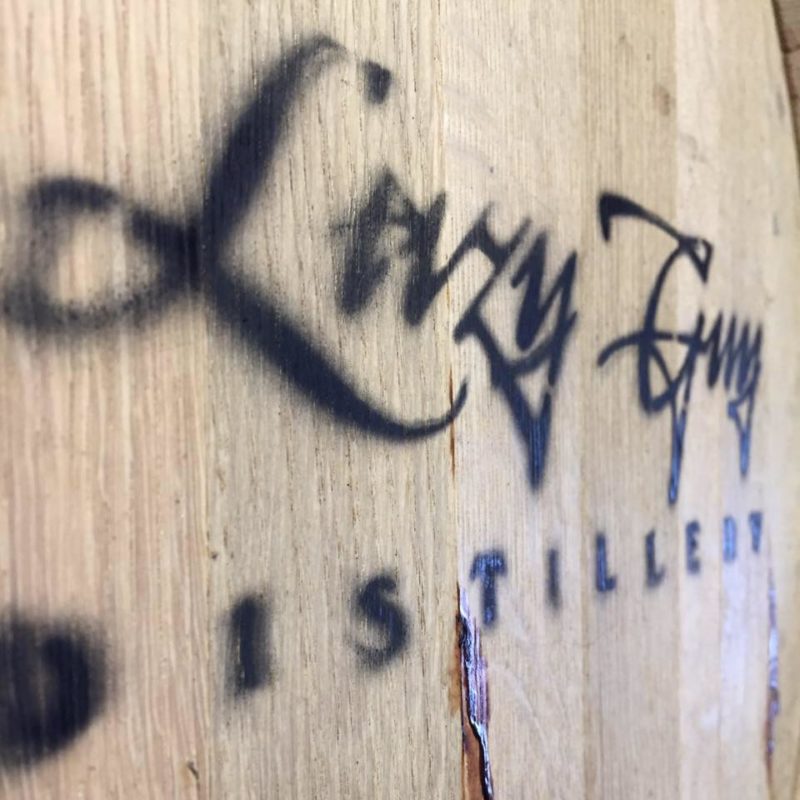 What attributes would you say are most important for a master distiller to possess?
What attributes would you say are most important for a master distiller to possess?
MA: Attention to detail and excellent sensory abilities (taste/smell). Of course, efficiency and consistent product are also important which all come from a repeatable process. Interestingly enough – I think a key ability is to recognize something ‘better’ than what you have. We’ve adjusted our recipe for our bourbon three times; once in the very beginning and then again over the past summer. Each time it was to improve our flavor profiles. So having the mindset to be open to change – even when it may be uncomfortable – is really important. Seems the thing I learn every day in the distillery is how much I didn’t know the day before J
What’s the secret to a great dram?
MA: I’m not sure there is one magic secret really. But I think the BEST dram is what YOU personally like to drink. I often get asked ‘what is the best whiskey’ or ‘ what is YOUR favorite whiskey’? You could put any technical spin on that answer, like ‘ours is the best because its hand-crafted with GA corn’ or ‘we use glacier water from an aquifer’ or ‘we distill our spirits 20x’…. These things and many more DO appeal to many folks, but there’s a LOT of great spirits out there. I believe the secret to a great dram is attention to the production process, using quality ingredients and delivering excellent flavor when its enjoyed.
Is there a right way to drink whiskey?
MA: Straight or neat is my preference, but I also like a great whiskey cocktail as well. I think for the average whiskey drinker, that would also be true. Straight or neat brings out the truest flavor of the grains, unencumbered by additives/mixers or other ingredients. But there are some whiskies that are best enjoyed in a particular way; primarily the much older bourbons in the 12-20 year range. Single/large ice is the best way to enjoy those – but they’re not as mainstream as most Bourbon/Rye and often not found in the majority of liquor cabinets in most households.
What – in your opinion – makes the spirits produced at your distillery unique?
MA: We developed the recipes from scratch, use GA corn and other regional ingredients and are VERY small batch in volume. Our flavors are unique to our process and our flavors cannot be replicated outside of our facility. Aside from the unique spirits, visitors to the distillery can touch/smell/feel the production process – that really resonates with people and they connect with our brand – and what we’re doing.
What are your hopes for the distillery 5 years from now? What do you want to be known for?
MA: The hope is to continue to remain operational until such time laws adjust to allow us to expand and grow our brand. We won’t expand under current legislation. Bourbon/Rye are our main focus and I don’t see that changing. We’ll supplement those spirits with others in the future, but we want to keep delivering world-class bourbon and rye in a market dominated by large scale producers. We’re always up for a good challenge!
Anything else you’d like to share with our readers?
MA: Come see the distillery! Saturdays are our tour days… pickup and enjoy Side Track Bourbon or 5th Article Rye Whiskey and enjoy the Lazy Guy lifestyle.





